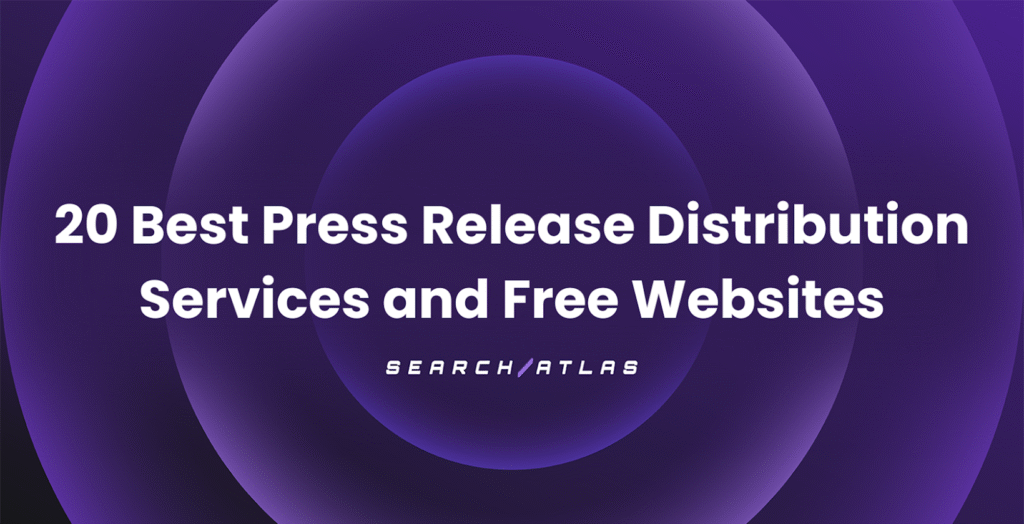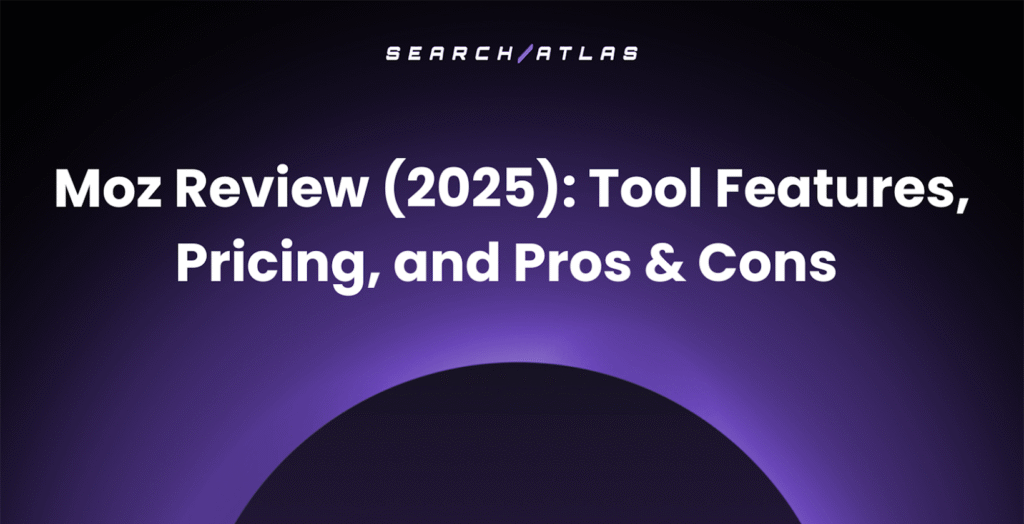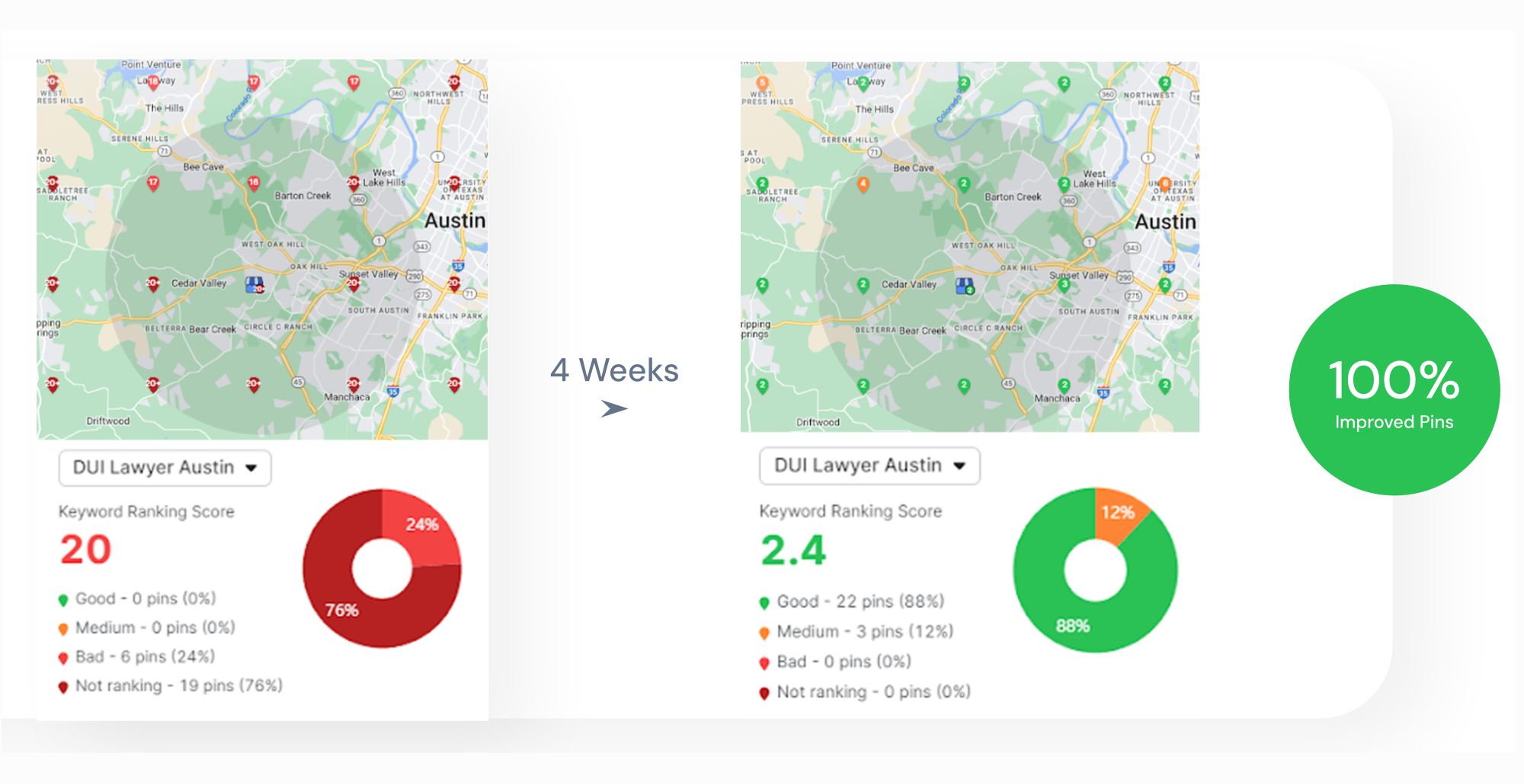Discover the Best CMS for SEO to Elevate Your Site’s Performance
Selecting the ideal Content Management System (CMS) that supports robust SEO activities is vital for any organization aiming to secure a superior position on search engine result pages (SERPs).
With an abundance of CMS platforms available, from WordPress and Shopify to Adobe Commerce and Drupal, the quest to identify which CMS offers the best SEO capabilities becomes imperative.
The chosen platform must not only facilitate easy content management but also possess inherent SEO features such as efficient site speed, responsive design, and advanced customization options for meta tags, alt text, and URL structures.
This synthesis of user experience, simple management, and optimization tools creates a formidable foundation for any successful SEO strategy.
Keep reading to unveil insights on how to match your marketing objectives with the perfect CMS.
Key Takeaways
- The right CMS with advanced SEO tools can lead to significant increases in organic traffic and better search engine rankings
- A CMS tailored for SEO empowers efficient content management and optimization, facilitating improved site performance and user engagement
- Strategic use of CMS features such as responsiveness and structured data enhances a site’s search visibility and user experience
- Integration with leading SEO plugins within a CMS can provide comprehensive optimization and refined meta tag management
- Regular updates and proactive SEO audits within a CMS are critical for maintaining alignment with search engine guidelines and achieving long-term success
Essential Features to Look for in a Top SEO CMS

Selecting the appropriate content management system (CMS) is pivotal for any business aiming to improve its search engine placement.
A content management platform with robust SEO capabilities becomes not just a facilitator of content dispatch but also a pivotal growth lever.
As organizations sift through a plethora of CMS options, essential attributes emerge that set industry standards.
These include intuitive interfaces for content optimization, bespoke SEO analytics, intrinsic mobile enhancement features, a scalable framework for voluminous content, harmonious integration with paramount SEO plugins, and a commitment to continual updates aligning with SEO best practices.
Bridging technical prowess with user-centric innovation, the paramount CMS for SEO adapts fluidly to the evolving landscape of search engine algorithms while enhancing the content creation cycle’s efficiency and efficacy.
Intuitive Content Optimization Interfaces
For business professionals assessing various content management systems, the presence of intuitive content optimization interfaces is non-negotiable. These systems streamline on-page SEO tasks, enabling users to input metadata, scrutinize keyword density, and insert alt text with commendable ease.
Efficiency in content management is significantly amplified when the CMS platform offers an intuitive optimization interface that demystifies SEO complexities. This feature allows for real-time, actionable insights during content development, ensuring optimization aligns with target keywords and user experience expectations:
| Feature | Function | Business Impact |
|---|---|---|
| Title Tag Optimization | Guides users to create compelling, keyword-rich title tags. | Improves SERP visibility, fostering enhanced click-through rates. |
| Meta Description Editor | Facilitates crafting descriptions that encapsulate page content and entice searches. | Optimizes search snippets, potentially improving organic search performance. |
| Alt Text Entry | Assists in adding descriptive text to images for better SEO and accessibility. | Boosts image searchability while complying with web accessibility standards. |
Native SEO Analytics and Reporting Tools
A CMS that excels in search engine optimization embraces the power of native SEO analytics and reporting tools. These intrinsic assets offer real-time tracking of SEO performance, empowering businesses to react promptly and competently to fluctuations in search engine result pages (SERPs), thus maintaining a competitive edge.
Rich insights gleaned from these analytics facilitate identification of trends, measure the impact of SEO efforts on traffic and conversions, and spotlight opportunities for refinement. By leveraging these integrated tools, enterprises can hone their content strategies and augment their site’s stature within the digital marketplace.
Built-in Mobile Optimization for Improved Rankings
With the ascent of mobile browsing, a CMS equipping websites with built-in mobile optimization governs the essentials of SEO friendly design. This vital feature ensures that site structure and content render seamlessly on various devices, critically bolstering the site’s favorability in search engine algorithms that prioritize mobile-friendly user experiences.
As search engines continuously refine their metrics to serve mobile users, an indispensable CMS naturally integrates mobile optimization, sharpening a site’s edge in achieving superior rankings. Enhanced mobile responsiveness not only satisfies algorithmic criteria but also caters to the user’s demand for fast, accessible, and engaging mobile content, thereby reducing bounce rates and elevating organic reach.
Scalable Infrastructure to Support Content Growth
A CMS equipped with a scalable infrastructure is the cornerstone for any enterprise seeking to nurture an expansive digital presence. This essential feature ensures that the platform can support growth in website traffic, content volume, and technological advancements without degradation in performance or user experience.
As organizational content demands surge, a CMS that promises scalability offers a solid foundation for accommodating an ever-growing library of resources. It upholds performance standards while managing large data sets, complex page elements, and increasing backend demands, thereby anchoring the site’s ability to scale in line with business objectives.
| Scalability Feature | Benefit | Impact on SEO |
|---|---|---|
| Robust Data Handling | Efficient management of extensive content databases. | Consistent site speed and stability support favorable search engine rankings. |
| Flexible Architecture | Ability to adapt to evolving content strategies and user demands. | Facilitates the integration of new SEO features and technologies. |
| Automatic Scaling | Seamless adjustment to fluctuating traffic volumes. | Preserves user experience during peak load times, indirectly aiding SEO performance. |
Seamless Integration With Leading SEO Plugins
In today’s rapidly evolving digital landscape, a content management system that seamlessly integrates with leading SEO plugins can be transformative. This harmonization equips businesses with the tools to amplify their SEO strategy, ensuring effortless alignment with the latest search engine updates and best practices:
| Plugin Compatibility | Core Benefit | Impact on SEO Strategy |
|---|---|---|
| Yoast SEO | Comprehensive on-page content analysis. | Refines meta tags and readability for better SERP rankings |
| SEO AI Otto | AI-driven insights for optimization. | Enhances content relevance and keyword targeting precision. |
The best CMS for SEO not only accommodates but thrives on the integration of advanced SEO plugins. By embracing these third-party enhancements, the CMS transcends its foundational capabilities, offering end-users a dynamic and robust suite of tools to push their search engine optimization to new heights.
Regular Updates to Keep Up With SEO Best Practices
An optimal content management system (CMS) is one that is not static but evolves with the SEO landscape. The best CMS platforms dedicate resources to provide regular updates that help businesses adhere to the latest search engine optimization best practices, ensuring sustained online visibility and relevancy.
Adaptability is a critical feature of a CMS in the context of SEO, as it must readily incorporate algorithmic changes from search engines. A commitment to regular updates is a hallmark of an SEO-focused CMS, which allows users to adjust their strategies efficiently and stay ahead in the competitive digital market.
How the Right CMS Can Transform Your SEO Strategy

Navigating the complexities of search engine optimization can be a daunting challenge for even the most seasoned digital marketers.
The cornerstone of any effective SEO strategy is a content management system (CMS) adept in elevating a site’s performance, converging user focus with algorithmic preferences.
A premium CMS for SEO streamlines on-page efforts, enhancing site speed to enrich the user experience, simplifies the management of content to ensure its quality is paramount, equips teams with sophisticated keyword management tools, and empowers the effortless implementation of structured data and schema markup.
Harnessing such a CMS can utterly transform SEO strategies, propelling websites into prominent visibility within the tapestry of digital landscapes.
Streamlining Your on-Page SEO Efforts
Selecting a refined CMS tailored for SEO equips marketing teams with powerful on-page optimization tools. By doing so, businesses significantly economize the time and resources dedicated to enhancing page elements, ensuring content is both relevant and optimized for search engines.
Effective CMS platforms offer streamlined processes for implementing SEO best practices, from the tactical use of title tags to the strategic placement of internally constructed links and alt text for multimedia items. This attention to detail within a CMS fortifies the depth and breadth of on-page optimization, rendering a website more discoverable and appealing to both search engines and potential visitors:
| On-Page Element | Optimization Tool | SEO Impact |
|---|---|---|
| Title Tags | Auto-optimized suggestions | Enhances SERP relevancy and click-through rates |
| Internal Links | Management systems for link integrity | Improves website structure and navigation ease |
| Multimedia Alt Text | Contextual alt text population | Boosts multimedia content’s SEO value and accessibility |
The implementation of on-page SEO audits within a CMS encourages continuous improvement in content strategies. Consequently, a system that provides regular feedback on SEO performance enables businesses to refine their content to meet both user and search engine criteria proactively.
Enhancing Site Speed for Better User Experience
Effortlessly escalating site speed is a fundamental SEO aim facilitated by a superior CMS. This acceleration enhances the site’s user experience, directly influencing both visitor satisfaction and search engine ranking algorithms that prioritize page speed as a measure of quality.
Optimizing site speed goes beyond mere search engine appeasement; it addresses the critical user impatience with slow-loading pages. Businesses leveraging a CMS that brings together powerful optimization tools with streamlined content delivery network (CDN) integration witness substantial improvements in user engagement and retention:
- Compressed image files and optimized media assets minimize load times.
- Cache management capabilities ensure content is promptly accessible to repeat visitors.
- Advanced CDN implementations reduce geographical latency, presenting content rapidly, regardless of user location.
Simplifying Content Management to Focus on Quality
Streamlined content management systems significantly alleviate the complexities associated with publishing high-quality content. They provision marketers with an organized workflow, enabling a focus on content that resonates with the audience and adheres to SEO guidelines.
- A CMS with a clean, user-friendly interface allows for swift navigation and content updates, facilitating a consistent publishing cadence.
- Dedicated SEO content tools within the CMS provide insights for content refinement, ensuring continuous quality enhancement.
- Automation features help schedule content in advance, allowing teams to strategize and execute without the constraints of manual posting.
By easing the burden of technical SEO requirements, a CMS with superior content management features empowers creators to concentrate on producing engaging and valuable material. This focus on quality not only satisfies user intent but also signals to search engines the relevance and authority of the site’s content.
Providing Tools for Effective Keyword Management
At the heart of search engine optimization, keyword management stands as a vital cog, and an efficient CMS must offer sophisticated tools to handle this critical aspect. The hallmark of an advanced CMS is its capacity to not only store and categorize target keywords but also to assist in the strategic deployment of these keywords across content, headers, and meta tags.
By integrating advanced keyword management tools, a CMS ensures marketers optimize content with precision, aligning it with the searches and needs of their intended audience. Moreover, this integration enables the tracking and analysis of keyword performance, fostering informed decisions that propel SEO strategies:
- Keyword Storage and Organization: A central repository for all target keywords, streamlining the optimization process.
- Strategic Keyword Deployment: Tools that suggest optimal keyword placement within content, boosting relevance and search visibility.
- Keyword Performance Tracking: Analytics features that monitor keyword efficacy, guiding continual refinement of SEO tactics.
Enabling Structured Data and Schema Markup Easily
Embracing a CMS that facilitates the convenient application of structured data and schema markup allows content managers to enhance the clarity of their data for search engines. By simplifying this integration, a website’s content becomes more precisely categorized, enabling search engines to display rich snippets that improve click-through rates and advance user engagement.
The inclusion of structured data can significantly amplify a site’s visibility by communicating content context directly to search engines. This process results in more informative and appealing presentation in search results, driving quality traffic and establishing a deeper level of trust between a website and its audience.
| Feature | Function | SEO Impact |
|---|---|---|
| Schema Markup Integration | Enables easy addition of microdata to HTML. | Improves search relevance and supports appearance of rich snippets. |
| Structured Data Testing | Assists in validating the accuracy of structured data implementation. | Ensures search engines correctly interpret data, enhancing SEO value. |
| Guided Markup Tools | Simplifies the process of tagging elements with the right schema vocabulary. | Improves content discoverability and increases the likelihood of appearing in voice search results. |
Comparing Popular CMS Options for SEO Benefits

When venturing through the expanse of content management systems, discerning which offers the pinnacle of SEO advantages can be arduous yet rewarding.
Each platform presents a unique blend of features catering to specific needs—from WordPress’s dominant position as a versatile SEO juggernaut to Magento’s e-commerce-centered optimization capabilities.
Joomla’s prowess lies in its customizability, providing a granular control environment, while Drupal excels in sophisticated SEO tools suited for developers.
Wix, not to be underestimated, emerges as an accessible option for those starting their SEO journey.
As businesses deliberate over WordPress, Joomla, Drupal, Magento, and Wix, they must meticulously evaluate the SEO offerings that align with their strategic goals, resources, and technical aptitude to ultimately enhance their site’s performance.
Evaluating WordPress: The SEO Powerhouse
Analyzing WordPress reveals a robust architecture tailored for search engine optimization. This CMS platform not only favors a wide spectrum of users, from novices to experts, but it also offers a coherent and readily accessible suite of SEO tools that elevate a site’s search engine visibility.
The deep integration with some of the market’s top SEO plugins like Yoast SEO, combined with advanced features like clean permalink structures and extensive customization options, empowers site owners to fine-tune their SEO strategy to precision:
| SEO Feature | Description | Impact on SEO |
|---|---|---|
| SEO Plugin Compatibility | Supports leading SEO plugins for comprehensive optimization. | Enables granular control over SEO elements and simplifies strategy execution. |
| Customization Capability | Offers diverse themes and plugins for tailored user experiences. | Improves user engagement, which is a factor in search engine ranking algorithms. |
| Clean Permalink Structure | Enables the creation of SEO-friendly URLs. | Facilitates better crawling and indexing by search engines. |
WordPress stands out with its inherent adaptability to the ever-changing SEO landscape, maintaining a steadfast commitment to providing a CMS that aligns with the latest search engine guidelines and user experience expectations.
Looking at Joomla: Customizability and Control
Joomla stands as a robust contender in the realm of content management platforms, revered for its expansive customizability and control. This CMS equips developers and site managers with a modular framework that enables granular control over even the most intricate site features, fostering an environment where SEO tailorability is paramount.
With its advanced access control lists (ACLs) and a comprehensive set of extensions, Joomla’s CMS architecture provides the scaffolding necessary for creating highly optimized websites. Its emphasis on customization extends to SEO as well, allowing detailed management of metadata and url structure to support intricate search engine optimization tasks.
Assessing Drupal: Advanced SEO for Developers
Assessing Drupal’s capabilities, it becomes apparent that this CMS is tailored towards those with a developer’s acumen, providing an environment ripe for implementing advanced SEO techniques. Its focus on scalability, security, and performance, combined with powerful taxonomy features, makes it a prime choice for those seeking meticulous control over their SEO endeavors.
Drupal’s proficiency lies in the depth of its customization options, allowing for precise control of every aspect of SEO, from URL structure to content hierarchy. Enterprises with specialized SEO needs will find Drupal’s extensible framework and module ecosystem conducive to creating highly tailored, search-engine-friendly websites that stand the test of algorithmic changes and market shifts.
Reviewing Magento: Optimized for E-Commerce SEO
Moving into the e-commerce sector, Magento boasts SEO optimization out of the box, targeted towards digital storefronts. Magento’s architecture seamlessly incorporates SEO necessities such as automatically generated sitemaps and search-friendly URL structure, providing an optimized canvas for retailers to expand their online visibility.
Furthermore, the system’s capacity for handling complex SEO tasks is notable. It includes customized product and category page optimizations that support unique meta-tagging, contributing to a refined user search experience and enhancing the chances of ranking higher in search engine result pages. Magento’s dedication to e-commerce SEO empowers merchants to focus on customer engagement and sales, while confidently managing the SEO backdrop.
Considering Wix: SEO for Beginners and Beyond
Wix emerges as a formidable choice for those embarking on their SEO journey, offering a user-friendly landscape that simplifies search engine optimization for novices. The platform’s intuitive design and streamlined SEO wizard guide users through the fundamental steps to enhance their site’s visibility, establishing a solid foundation for online presence with minimal technical demands.
As an accessible entry point into the digital arena, Wix extends beyond just beginner-friendly tools; it is a continuously evolving platform committed to incorporating SEO advancements. The implementation of built-in features like mobile optimization and an XML sitemap generator underscores Wix’s dedication to user empowerment and sustainable search engine success:
| Wix SEO Feature | Description | Impact on User Success |
|---|---|---|
| SEO Wizard | Guides users through initial SEO setup with tailored recommendations. | Reduces the learning curve for SEO beginners, fostering early gains in site visibility. |
| Mobile Optimization | Automatically ensures websites are responsive on all devices. | Boosts rankings in mobile search results, catering to a significant segment of internet users. |
| XML Sitemap Generator | Creates a sitemap that helps search engines better crawl and index web pages. | Increases the efficiency of site indexing, enhancing overall SEO efficacy. |
Unveiling the Best CMS for Site Performance and SEO

As digital landscapes become increasingly competitive, selecting the right content management system (CMS) with robust search engine optimization (SEO) capabilities is essential for businesses to thrive.
It’s about more than just drafting content; it’s about leveraging a platform that can magnify a website’s online presence through strategic, SEO-centered features.
When determining which CMS represents the pinnacle of SEO efficiency, considerations encompass performance metrics, user experiences documented through testimonials, and endorsements by industry experts.
The success of a platform is not determined solely by its feature list but by its proven track record in real-world applications, empowering users to attain their SEO objectives with precision and effectiveness.
Criteria for Selecting the Best SEO-Friendly CMS
In the quest for the best CMS for SEO, analytical rigor must be applied to assess each platform’s capacity to effectively manage search engine optimization tasks. Key evaluative criteria include the CMS’s native ability to support essential SEO functions such as real-time content analysis, meta tag management, and the seamless integration of site speed enhancements, all of which underpin a successful SEO strategy.
Furthermore, professionals gravitate towards a content management system that not only offers advanced SEO tools but also boasts a clear track record of enabling users to achieve measurable improvements in search rankings. The best CMS for SEO is one that resonates with the user’s technical skill level while providing reliable and scalable support for their site’s growing content needs and SEO aspirations.
Benchmarking Performance With Real World Examples
Discerning the most effective CMS for SEO transcends hypothetical scenarios; real-world case studies and success stories offer tangible evidence of a system’s efficacy. By examining the progress of businesses that have implemented various CMS platforms, one can observe firsthand the impact on search engine rankings and user engagement, thereby gauging actual performance against projected benefits.
Analytical evaluations highlight benchmarks such as increased page speed, reduced bounce rates, and significant leaps in SERP standings. Reviewing these indicators across a diverse range of industries allows for a comprehensive comparison that transcends anecdotal evidence, providing a data-driven foundation for selecting a CMS that consistently delivers superior SEO results.
User Testimonials and Industry Expert Reviews
User testimonials offer a window into the practical impact of a CMS on SEO efforts and overall site performance. They encapsulate the experiences of actual users, spotlighting the triumphs and challenges encountered while navigating the SEO journey within various platforms.
- Analysis of user feedback can illuminate the usability and effectiveness of CMS features designed for SEO success.
- Testimonials often reveal the responsiveness of a platform’s support team and the helpfulness of community resources in optimizing SEO strategies.
Conversely, industry expert reviews provide a technical dissection of a CMS’s SEO capabilities, weighing them against contemporary search engine algorithms and digital marketing requisites. Professionals in the field gauge the adaptability of these systems, their innovation in embracing SEO changes, and the value they provide in a competitive marketplace.
Expert Tips to Leverage CMS Features for Maximum SEO

To harness the full potency of a content management system (CMS), marketers and webmasters must adeptly utilize its extensive suite of SEO features.
Recognizing the best CMS for SEO is only the beginning; the transformative aspect lies in expertly leveraging built-in options and enhancements to achieve stellar search engine results.
This requires a thorough understanding of CMS settings for optimization, strategic deployment of content structuring protocols for enhanced indexing, the astute application of plugins for extended functionality, regular audits to sustain SEO integrity, and the judicious application of system updates.
Each of these components plays a critical role in fortifying a website’s visibility and should be approached with a blend of technical knowledge and creative strategy.
Optimizing CMS Settings for Immediate SEO Wins
Effective optimization of CMS settings is a powerful stride towards achieving palpable SEO victories. Configuring a CMS to automatically generate SEO-friendly URL structures, activating SSL certificates for enhanced security, and ensuring responsive design settings are paramount in laying the foundation for a strong SEO performance.
Attuned to the subtleties of search algorithms, seasoned professionals exploit CMS features such as image compression for faster page loads and schema markup tools to enrich snippets in search results. These adjustments, while often overlooked, can initiate significant improvements in search engine visibility and user engagement, fostering a website’s climb up the SERP ladder.
Content Structuring Techniques for Better Indexing
Mastering content structuring techniques within a CMS can markedly boost a site’s indexing by search engines. Implementing clear hierarchies with logical categories, subcategories, and an accurate sitemap ensures that search engines crawl and index content with greater precision, leading to improved search result presence.
Strategic use of title tags, headers, and meta descriptions within a CMS forms the cornerstone of effective SEO by providing search engines with succinct insights into the relevance of content. Meticulously tailored page elements ensure a more accurate representation in SERPs, thus enhancing a site’s discoverability and indexing potential.
Creative Usage of Plugins to Extend SEO Functionality
Expanding the horizon of search engine optimization within a CMS, savvy professionals leverage plugins to glean additional SEO functionality. Such plugins can offer innovative solutions for real-time content analysis, automated image optimization, and advanced schema implementation, further sharpening a website’s competitive edge in the digital realm.
Plugins enrich the SEO toolkit, enabling customization and precise control over optimization processes. For instance, by integrating a dynamic XML sitemap generator, businesses ensure their content’s timely appearance in search engine crawls, thereby aiding in efficient content discovery and indexation:
| Plugin Function | SEO Enhancement | Operational Benefit |
|---|---|---|
| Real-Time Content Analysis | Optimizes content for target keywords and readability. | Facilitates content refinement for improved search relevance. |
| Automated Image Optimization | Reduces image file sizes for faster load times. | Enhances page speed, contributing to better user experience and SEO performance. |
| Advanced Schema Implementation | Ensures rich snippet display in search results. | Augments content visibility and user engagement. |
Auditing Tools to Maintain and Improve SEO Stature
Employing auditing tools within a content management system is a strategic measure to safeguard and elevate a site’s search engine optimization stature. These tools scrutinize every facet of a website’s SEO profile, from page speed and meta tags to internal linking structures, enabling webmasters to pinpoint areas ripe for refinement.
Through consistent application of these auditing functionalities, businesses establish a proactive regime of SEO maintenance, ensuring their digital properties persist in reflecting the latest search engine guidelines and best practices. This diligent oversight is crucial for sustaining ranking positions and realizing long-term SEO success.
Leveraging CMS Updates for Ongoing SEO Success
Staying vigilant with CMS updates is pivotal for maintaining and augmenting a website’s SEO agility. Frequent updates ensure that a CMS remains in lockstep with the latest search engine algorithmic advancements and security protocols, a critical aspect for sustaining a trusted and authoritative online presence.
Professionals who adeptly apply the latest updates can sharpen their website’s competitive edge, as these enhancements often introduce refined SEO features and improvements in site speed and user experience. Integrating these updates swiftly and efficiently is a testament to a website’s dedication to optimization excellence and overall digital strategy.
Case Studies: Successful SEO Results With the Ideal CMS

Unveiling the profound connection between a content management system (CMS) and search engine optimization (SEO) achievements beckons an insightful examination of real-world scenarios.
This exploration brings forth a rich tableau of success narratives, detailing how dedicated CMS solutions have catalyzed breakthroughs in organic traffic, empowered brands to scale their SEO effectively, and supported long-standing triumphs across varied industries.
By juxtaposing the progression of SEO metrics before and after the integration of a strategic CMS, one gains a comprehensive understanding of the transformative power these systems hold in optimizing digital footprints.
The ensuing case studies underscore the tangible impacts of meticulously chosen CMS tools on search visibility and site performance, illustrating the monumental strides made possible through their use.
Breakthroughs in Organic Traffic With a Dedicated CMS
When assessing the impact of a content management system on SEO outcomes, breakthroughs in organic traffic speak volumes about a CMS’s efficacy. Firms that select a CMS with advanced SEO tools often witness a marked increase in organic reach, reflecting the power of optimized content and site architecture to attract relevant audiences.
Implementing a CMS designed with SEO in mind fosters a nurturing environment for organic growth, where businesses observe not only increases in traffic but also improvements in the quality of visitor engagement. Enhanced indexing, seamless user experiences, and better alignment with search intent contribute significantly to this uptick in organic visibility:
| SEO Focus Area | Aspect Improved by CMS | Resulting Benefit |
|---|---|---|
| Content Indexing | Advanced indexing features and sitemap optimizations. | Improvements in search engine rankings and visibility of content. |
| User Experience | Responsive design and faster page loading times. | Higher engagement rates and lower bounce rates from organic visitors. |
| Search Intent Alignment | Content optimization tools targeted at relevant keywords. | Increased traffic from users with intent closely matching the site’s offerings. |
Case Study of a Brand Scaling SEO With CMS Tools
A notable case study exemplifies a brand’s journey to SEO prominence through the strategic use of CMS tools. After migrating to a CMS renowned for its integrated SEO features and user-friendly content optimization interfaces, the brand witnessed a measurable surge in ranking for multiple target keywords.
The brand’s adoption of an astute CMS not only streamlined its content management processes but also fortified its SEO agenda with advanced analytics tools. This transition was pivotal in driving increased organic traffic and improving the brand’s visibility in search engine results pages, thereby achieving its objective of scaling SEO effectively.
Long-Term SEO Success Stories From Diverse Industries
Across various sectors, from healthcare to ecommerce, diverse industries have harnessed the capabilities of a refined CMS to steer their long-term SEO triumphs. These success stories hinge on leveraging a robust CMS foundation that can adeptly handle a complex tapestry of content requirements, while continuously adapting to the fluctuating nuances of search engine algorithms.
- Health sector websites that pivot towards patient education and resources have witnessed sustained organic growth by utilizing CMS features that cater to diverse audience needs and search behaviors.
- Ecommerce platforms integrating agile CMS solutions with advanced SEO analytics have secured enduring visibility in search results, directly impacting their competitive standing and revenue streams.
In the education field, institutions embracing content management platforms with sophisticated SEO tools have carved out a digital niche for themselves. By focusing on content relevance and strategic keyword integration, these academies have attained prominent search engine placement that endures beyond short-term tactics, underscoring the potency of a well-chosen CMS in achieving lasting SEO success.
Comparing SEO Progress Before and After CMS Integration
Comparing SEO metrics before and after the integration of a sophisticated CMS can provide illuminating insights into the system’s impact on a website’s performance. Thorough analysis often reveals substantial enhancements in search engine result page standings, coupled with an uptick in the quantity and quality of organic traffic, presenting a clear delineation of progress attributable to the CMS’s SEO capabilities.
Businesses undergoing such transformative upgrades document a stark contrast in their online visibility, typically observing a more robust site structure, refined keyword optimization, and improved content management—all fueling a notable shift in their digital marketing effectiveness. These comparative studies serve as a testament to the CMS, substantiating its role as a catalyst for elevated SEO success.
Frequently Asked Questions
What are the essential features to consider when choosing a CMS for SEO optimization?
When selecting a content management system for SEO optimization, it is imperative to consider features that support a robust SEO strategy such as extensive SEO tool integrations, user-friendly URL structure, and responsive design for optimizing user experience. Equally important is the CMS’s ability to seamlessly integrate with analytics tools, its provision for mobile optimization, and its capacity for effective on-page SEO elements management, including meta tags, title tags, and alt text for images.
How can the right cms transform your overall SEO strategy and improve your site’s performance?
The judicious selection of a Content Management System (CMS) serves as the cornerstone for a formidable SEO strategy, enhancing site structure, user experience, and content optimization. By integrating advanced SEO capabilities, such as efficient site speed, intuitive URL structure, and automated metadata management, the right CMS becomes an instrumental vehicle propelling a website’s search engine rank and performance metrics.
What are some popular CMS options that offer significant SEO benefits?
Among the myriad of content management systems available, several stand out for their SEO capabilities, with HubSpot CMS, WordPress equipped with Yoast SEO plugin, Adobe Commerce (formerly Magento), and Drupal being especially noteworthy due to their robust SEO features, an ample array of SEO plugins, and extensive customization options that can cater to a variety of SEO strategies.
Each CMS platform brings its unique advantages to content management and optimization; for instance, HubSpot CMS integrates seamlessly with a comprehensive CRM platform, while WordPress, with the Yoast SEO plugin, provides user-friendly guidance for optimizing page elements. Adobe Commerce shines for its e-commerce orientation with strong SEO features, and Drupal offers a highly customizable environment, which is ideal for complex, SEO-intensive sites.
How does the best CMS for site performance and SEO differ from other available options?
The best content management system (CMS) for site performance and SEO distinguishes itself with robust SEO features, such as native content optimization tools, advanced SEO plugins like Yoast SEO, and seamless integration with analytics tools, all contributing to a superior user experience and higher SEO rank. Unlike its counterparts, such a CMS typically excels in site speed, offers efficient content management, and ensures that all page elements, from meta tags to image optimization, align with search engine optimization best practices, hence planting the seeds for an optimization process rooted in performance excellence.
Can you provide expert tips on how to leverage CMS features effectively to maximize SEO results?
Absolutely, maximizing SEO results through a content management system (CMS) requires a strategic approach, incorporating SEO best practices into every aspect of the website, from crafting exceptional content with targeted keywords to ensuring that technical elements like site structure and page speed meet search engine standards. An effective strategy would include taking full advantage of any SEO plugins, like Yoast SEO, to refine page elements such as title tags and meta descriptions, regularly auditing content to optimize quality and relevance, and employing a comprehensive analytics tool like Google Analytics to monitor and improve performance over time.
Additionally, meticulous attention to content optimization, such as utilizing a Topical Map for ensuring thorough subject coverage and identifying content gaps, alongside keeping track of domain authority with tools like the Domain Authority Checker can be particularly impactful.
Ensuring that every image has relevant alt text, optimizing URL structures for readability and relevance, and routinely checking the backlink profile of a website with a Backlink Analyzer are also crucial steps in the optimization process. Integrating these practices within a holistic SEO strategy, supported by a robust CMS platform, can substantially boost an organization’s search engine result pages (SERP) performance.
Conclusion
Choosing the right Content Management System (CMS) is crucial for businesses seeking to maximize their online visibility and enhance their website’s performance.
A top-tier CMS tailored for SEO provides an intuitive interface for on-page optimization, native analytics to track performance, and features for mobile optimization.
It should also offer scalability to handle content growth, seamless integration with essential SEO plugins, and regular updates to keep pace with SEO best practices.
Harnessing the capabilities of a CMS with these features can lead to significant SEO wins, streamline content management, and provide advanced tools for keyword management and structured data implementation.
By evaluating real-world user testimonials, industry reviews, and case studies, businesses can make informed decisions on the best SEO-focused CMS that aligns with their goals, enabling them to achieve and maintain high search engine rankings, drive organic traffic, and secure long-term SEO success.











